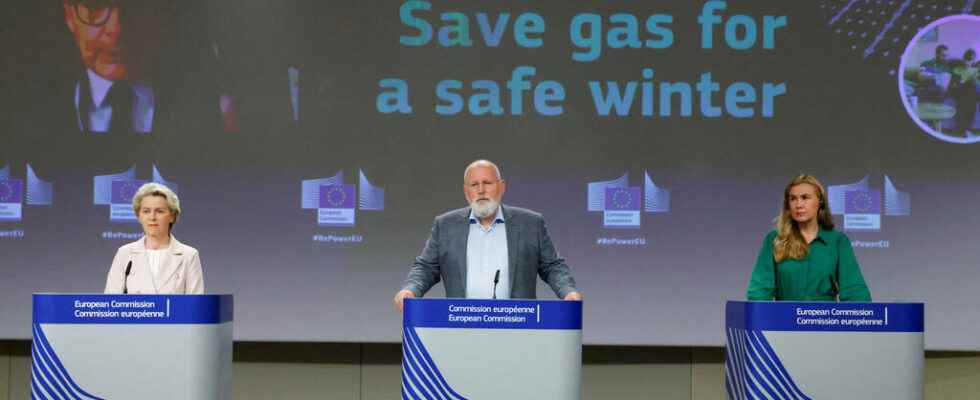The European Commission has just presented, this Wednesday, July 20, its proposals to deal with the gas crisis that has opened up since the war in Ukraine. With one goal: to overcome the fall in Russian gas deliveries. Among the proposals detailed in this plan: limit the heating of certain buildings, postpone the planned closure of nuclear power plants, or even encourage companies to reduce their consumption.
With our correspondent in Brussels, Pierre Benazet
Reducing consumption is the main point of the European Commission’s proposals. The effort will have to be united and must be accompanied by a filling of the gas stocks which will have to be at 80% of their capacity to face the winter of 2023-2024.
For the President of the European Commission, Ursula von der Leyen, the possibility of a complete cut off of the Russian gas tap must be seriously considered. The watchword: manage the shortage. And, to do this, the Commission is asking all Member States to reduce their gas consumption by 15% compared to the average of the last five years.
It is companies and public institutions that will have to make the effort, because household consumption must be protected. Some countries have already started to reduce gas consumption, such as the Netherlands or Finland, which was also one of the first to see its gas cut off by Russia.
The share of Russian gas in German imports fell from 55% before the war in Ukraine to 26% at the end of June, a reduction by half in less than six months
—Pascal Thibaut (@pthibaut) July 20, 2022
As for immediate measures, the Commission will propose limiting air conditioning in summer or heating in winter; 19° maximum, for example, for heating public or commercial buildings. But these energy savings will have to accompany changes in energy sources for industry with new reopenings of coal-fired power stations and with an extension of activity for nuclear power stations which were to be closed.
And if the voluntary reductions are not enough, the Commission proposes to be able to trigger a state of alert to make them binding.
► Read also: Gas restrictions in the EU : “We must think about energy solidarity before we tip over into the crisis”
